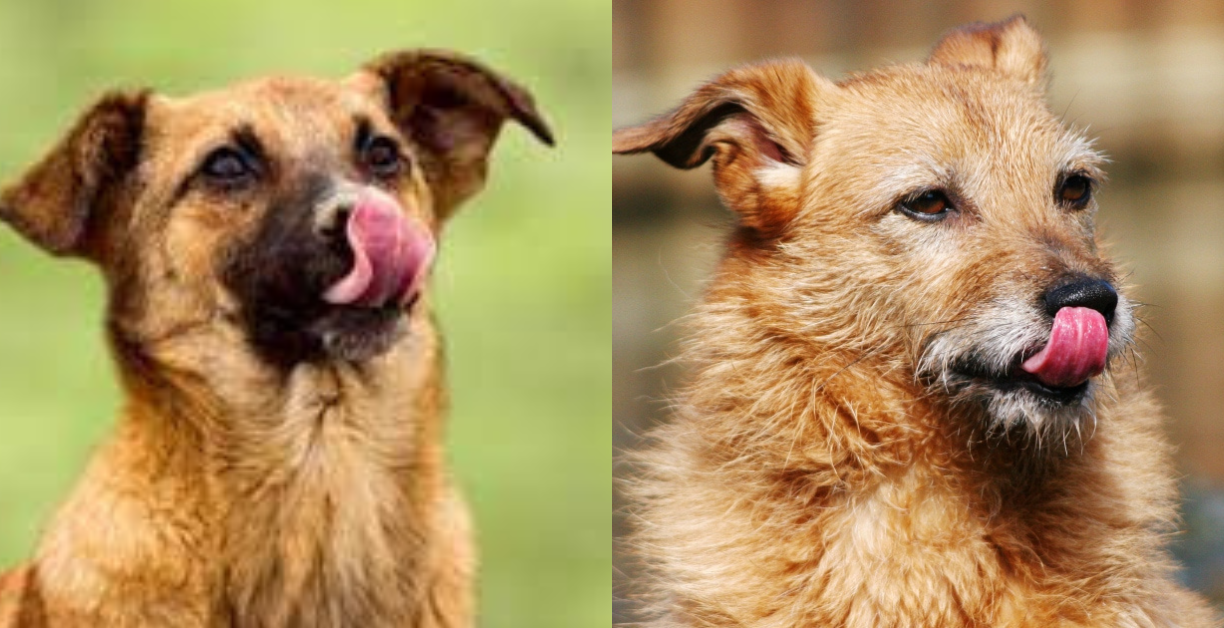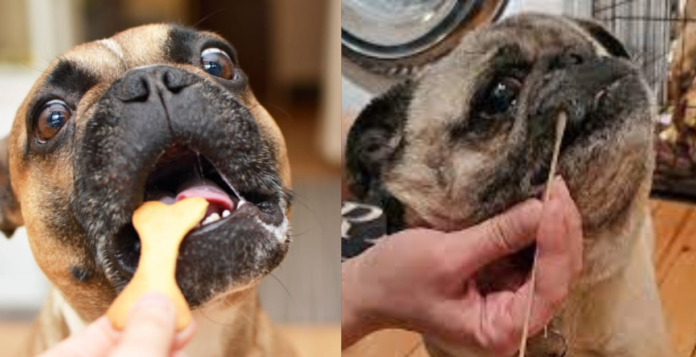Your query of why do dogs mouths quiver after licking is may be happened for a variety of reasons. One probable explanation is that they desire to clean their lips of extra hair and grime. Dogs have a thick covering of fur around their mouths that they frequently lick. Food, dust, and other material can clog up these brushes. Brushing their mouths helps dogs remove extra fur and grime.
why do dogs mouths quiver after licking
Another reason could be that dogs prefer to control the temperature surrounding their lips. The skin on a dog’s face is far more delicate than that of a human. When they lick their long hair for an extended period of time, the temperature surrounding their mouths may rise. Swishing their faces allows dogs to release extra heat.
Dogs can also relieve themselves by rubbing their mouths. When they are enthusiastic or disturbed, they can relax by scratching their faces. This is a self-soothing behaviour that aids in the relaxation of the mind and body.
Dogs licking one other’s private areas is a natural and widespread habit, and a dog’s mouth may shake as a result. This mouth shaking is most likely the dog’s way of getting rid of any unpleasant tastes or sensations in its mouth. Dogs who are ill may tremble or shiver, especially if they are going to vomit. If they are sick, they may lick their lips, drool, or swallow often. Here are some other option of that:
Unpleasant Taste: Imagine coming upon something really bitter or sour. Your dog’s reaction to an unpleasant taste would be to try to get rid of it as soon as possible. The quivering action is used to shake their mouth and tongue in the hopes of dislodging any irritating particles. This reflexive reaction is analogous to humans grimacing or making faces after consuming something unpleasant.
Flehmen Response: This intriguing behaviour, named after the German anatomist Johannes Friedrich von Flehmen, entails curling the upper lip back and profoundly breathing through the Jacobson’s organ, which is located in the roof of the mouth. This organ aids dogs in detecting pheromones and other strong odours, and the quivering action directs air towards it for greater detection.
While the shivering may appear unusual, it is only your dog trying to learn more about the strange fragrance they encountered. Organ aids dogs in detecting pheromones and other powerful scents, and the quivering action guides air towards it for greater detection. While the shivering may appear unusual, it is only your dog trying to learn more about the strange fragrance they encountered.

Read more
false teaching of celebrate recovery
2. Anticipation and Excitement:
Think about Pavlov’s dog salivating at the sound of a bell. Similarly, your dog may identify certain events with pleasant emotions. If licking makes them excited about something they enjoy, such as playing or tasty rewards, their excitement may appear as trembling lips and wagging tails. It’s their way of showing their excitement and anticipation for what’s to come.
Other Things to Think About:
Jaw Muscle Spasm: The quivering motion may be caused by a localised muscle spasm caused by weariness or a mild discomfort. Consider your own eye twitching after staring at a screen for an extended period of time. If the quivering occurs only on occasion and does not appear to be caused by a specific trigger, it is most likely a harmless muscular response.
Oral Pain: While less often, shivering might indicate dental discomfort. If your dog has dental problems, sores, or other disorders in their mouth, licking may irritate the sensitive area, resulting in an involuntary quivering response. Furthermore, excessive drooling, pawing at the mouth, or trouble swallowing could indicate underlying oral health issues.
Pay close attention to the context to determine the underlying cause of your dog’s quivering. Examine what they were licking, their overall body language, and any other indications that may have been present. If you’re still unclear, or if the quivering appears extreme or concerning, consult your veterinarian. They can evaluate your dog’s oral health and handle any issues that arise, ensuring that your pet is comfortable and happy.
To Understanding why do dogs mouths quiver after licking is your dog’s communication extends beyond spoken communication. Their body language, including tiny tics like mouth quivering, might reveal important information about their moods and well-being. You may develop your bond with your canine partner and give them with the finest care possible by noticing and interpreting these signals.

What did your dog lick? The quivering is most likely a reaction to the taste if it was anything unpleasant. Was your dog excited or playful before to the quivering? This could indicate that the cause is excitement or expectation.
Is the quivering constant, or does it occur on occasion? Temporary spasms are less likely to be concerning than persistent quivering. Is your dog displaying any additional symptoms of distress, such as drooling, pawing at their lips, or difficulty eating? This could be a sign of why do dogs mouths quiver after licking mouth pain and need the attention of a veterinarian.















